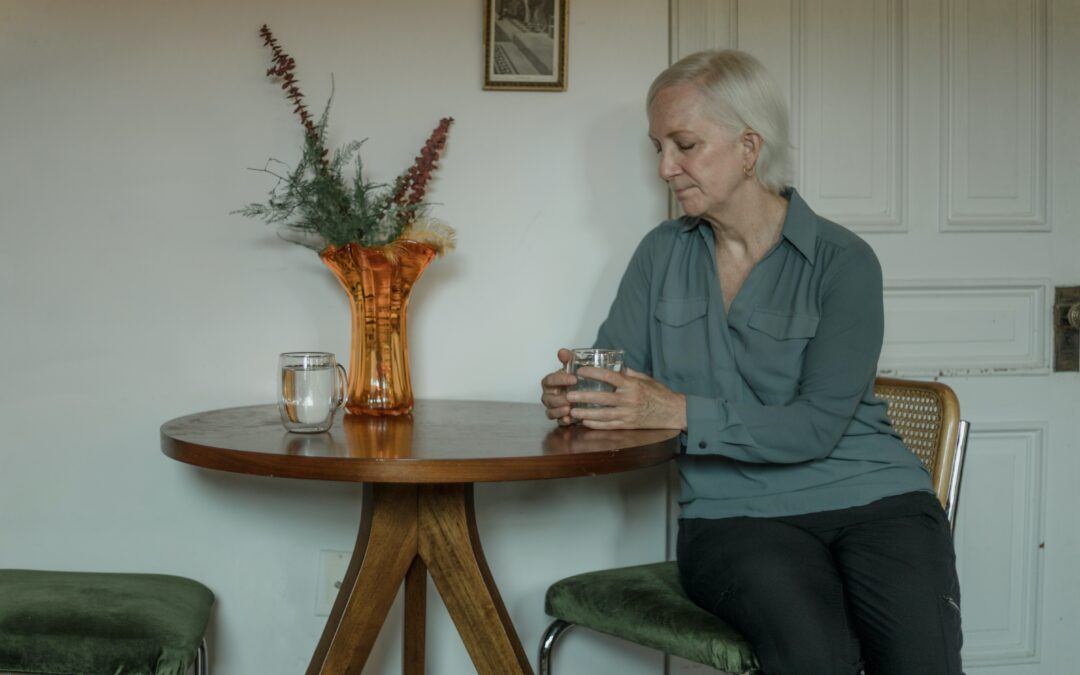Dementia produces brain abnormalities that can lead to hallucination or seeing, hearing, feeling, or tasting something that isn’t there. Their senses are being distorted or misinterpreted by their brain.
Hallucinations are a frequent dementia symptom. They can be terrifying for people who have them and difficult for caregivers. If you live with or care for someone with dementia who sees or hears things that don’t appear to be accurate, you’re probably all too familiar with this.
Dealing with dementia-related hallucinations can be done in a variety of ways. These include learning how to respond to someone scared or concerned about what they’re seeing, as well as practical methods for preventing hallucinations and medicine.
Even though the hallucination isn’t genuine, it feels extremely real to the individual experiencing it. Some hallucinations are frightening, but others may feature glimpses of everyday people, circumstances, or historical items. Some of them may even be pleasant or joyful.
These dementia hallucinations are more prevalent in Lewy Body and Parkinson’s dementias and occur in the middle or later stages of the disease. They can, however, occur in Alzheimer’s disease and other forms of dementia.
When your older adult has a hallucination, the most essential thing is accepting their experience, responding to their feelings, and keeping them safe. However, keep in mind that your loved one’s actions are most likely the result of changes in the brain caused by Alzheimer’s or dementia. It is ineffective to be dismissive, defensive, or argue your case.
How to deal with Dementia Hallucinations
Even if what is being imagined isn’t alarming, seeing things that aren’t there may be disconcerting and frightening. As a result, assuring someone with dementia who is experiencing hallucinations that what is happening is not exceptional and that it may stop occurring with time is a vital part of treating them.
Explaining that hallucinations can be managed and that there is nothing to be scared of can also be beneficial. Don’t dispute with someone who insists on seeing or hearing what they think they’re seeing or hearing. To them, what they’re going through is genuine; attempting to persuade them differently may produce irritation and worry, making things worse and giving them the impression that their worries are being rejected.
When a person with Alzheimer’s disease or another kind of dementia is having hallucinations or delusions, the following five methods are more effective:
Provide Reassurance
Assist with reassurance, comprehension, and concern. Fear is at the heart of your loved one’s reactions. Look for the emotion underneath their words, and validate their anxiety by acknowledging it. “That must be unsettling to believe someone is in the house with you,” for example, is an example of a validating comment. You recognise your loved one’s worry with this reaction.
Let someone experiencing dementia-related hallucinations know that you will regularly check in on them. Explain to workers and carers if they reside in a care facility that the individual suffers hallucinations that distress or alarm them.
Change the environment
Is there something they’re seeing that you’re missing? Discover where it is and what it is. Is it visible at a specific time of day? Perhaps the illumination from the window generates a shadow at certain times of the day, which can be addressed by closing the drapes or spending that time in another room. Make modifications based on the person’s imagination. If they “see” strangers peering through a window outside, show them the window is secured or cover the blinds or drapes. Rearrange furniture, install night lights, and make whatever other modifications you can to stop hallucinations from happening.
Try to distract them
De-escalating a hallucination can be as easy as listening to soothing music or strolling into a brightly lit room.
Are the characters from one of their favourite TV shows presently in their bedrooms? When your loved one is in the room, have there been any violent or disturbing episodes on TV? Turn off the television and schedule another activity for that time of day. What other pastimes do they enjoy? Popular diversions are taking a stroll, solving puzzles, playing cards, and gazing at pictures.
Maintain Routines
The less a person’s day-to-day experiences deviate from reality, the less likely they are to deviate from reality. As much as possible, maintain their daily routines. If the individual is in a care facility, make every effort to ensure that the staff and other caretakers are consistent daily. It may also be beneficial to keep track of when and under what circumstances hallucinations occur.
The best approach to respond to hallucinations caused by Alzheimer’s disease is to respond to the sensation and acknowledge what they’re going through. We all want to be understood, and the same can be said for loved ones with dementia.
